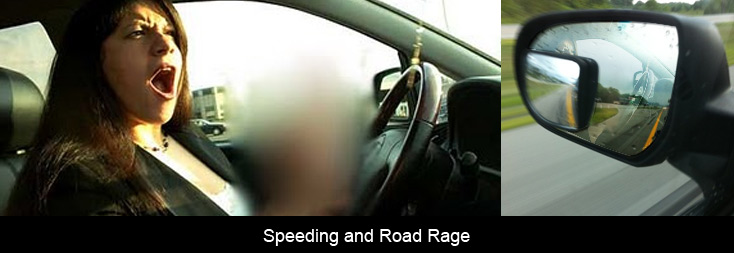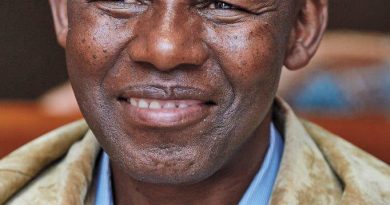Can I speed to get away from a driver presenting a road rage risk?

Road rage is one of the threats we try to avoid on the road. Aggressive driving behavior does not only present a car insurance claims risk – but could be life threatening. Many take the safe road and try to avoid enraged road users, but what if you try to speed away and then receive a speeding fine?
We would like to discuss this interesting scenario with the assistance of Justice Project South Africa.
Question:
Dear Sir/Madam
This is just a short letter about a situation I’m in and I would really appreciate it if you could help me in any way…
I was going to a friend in the Centurion area, driving in Theuns van Niekerk Street turning into Rooihuiskraal Road which had a speeding camera. There was a driver in front of me fooling around with his car, revving it and making wheel spins etc (have no proof of that car or driver unfortunately), so I decided to pass him in the left lane, just to get rid of him and to stop bothering me. He was all over the road and I overtook him in the left lane at which I think was at around a 110 km/h then the speeding camera flashed me. (i think the speed limit is around 60 km/h)
I’m not writing this to try and make an excuse, just simply trying to underline the scenario to why I was speeding. Now, all I want to know is, what will happen to me in this case? Do I go to court?, do I pay a fine?, how does the point structure work regarding my situation? I’ve been told that my driver’s license can be confiscated, which I really can’t afford because of work, but I do know, in the eyes of the law, it’s still speeding so I will oblige to any penalty or fine that’s given to me.
I’m a bit stressed as to what is going to happen and don’t know what to expect so I would really appreciate feedback or comments!
Thank you for your time and I hope you have a great day!
Answer:
You are obviously under great stress with respect to what happened and I would like to address your concerns.
First, the bad news:
In terms of the National Road Traffic Amendment Act which was proclaimed as being in force from November 2010, any person convicted of exceeding the speed limit by more than 30km/h in an urban area (60km/h zone, etc.) and 40km/h (80/100/120km/h etc.) on a freeway or outside of an urban area is liable upon conviction to a (hefty) fine or imprisonment or both and to have their driving licence suspended. The offence also carries with it a far more serious consequence – that of a permanent criminal record.
This provision was enacted because of the high incidence of speed violations of excessive proportion and was intended to begin to address the massive problem with ignoring speed limits that has become prevalent in South Africa. However, whilst this provision has existed since November 2010, little of it has actually been applied in practice and people convicted of speeds as high as 250km/h (Free State MEC in December 2010) have not had their driving licences suspended and that is very disappointing to see.
Now for the good news:
The operative word in law in South Africa (and elsewhere) is the word “convicted”. Because someone has been accused of an offence does not mean that they are guilty and it certainly does not mean that they have no right to defend the matter. Even when a person is convicted, extenuating circumstances and mitigating factors must also be considered in determining the extent of culpability and the degree of sentence that is handed down.
The law asks what the reasonable man (or woman) would have done in the same circumstances and this too is always considered.
Your circumstances
From what you have described, the other motorist was acting recklessly. The question is “was your reaction to this reasonable” and my immediate response is that you chose the incorrect remedy to the problem. Here is why:
1. The choices open to you in these circumstances were to:
a. Back off and let the reckless motorist go on his or her own way.
b. Call police and report the matter.
c. Speed away from that person.
2. Unfortunately you chose the third option which has now put you in a precarious position. You could have reacted differently but instead you chose the “macho” option.
3. If the other motorist was also speeding, then chances are that the camera also caught him or her and that will be good for your defence, but it is highly likely that he or she would have seen the flash and slowed down so as not to be photographed.
But having said this, the courts do understand that people are human and do not always choose the correct remedy to their problems. Therefore here is what is going to happen and how you should deal with it:
1. You will receive a summons to appear in court at some stage.
2. When you receive that summons I suggest that you immediately engage the services a good criminal attorney (I can recommend one if you like).
3. The attorney will be able to approach the public prosecutor and possibly negotiate an out of court settlement (admission of guilt fine) that has no criminal or other undesired consequences apart from a fine.
4. If that fails then the attorney will be able to mount a defence in court for you with the ultimate objective of getting you acquitted.
I would say that this is the very best way to handle the situation you find yourself in but I would also suggest that you learn from what has happened and always bear the following in mind:
1. It is very rarely acceptable to break the law in order to deal with a situation you find yourself in.
2. Speeding away from instead of backing away from other reckless motorists is rarely a good idea as it further endangers you.
3. Engaging in road rage or “acting policeman” is a very bad idea and I urge motorists not to engage with people who goad them on whilst on the road.
4. You can report reckless motorists to the SAPS or to the local traffic authorities. Be observant and record their number plates etc. and if you can, get a video clip of what they are doing.
5. Remember that taking evasive action rarely means speeding away from these road hogs. The best form of defence is very rarely attack, more especially when on the road.
6. Planning and preparation for circumstances you could be faced with whilst driving is a vital component of being a good driver and it is wise to contemplate as many circumstances in advance and formulate planned, rational responses before anything actually happens. For example, the following should be thought about and the appropriate responses planned ahead of finding oneself in that situation:
a. What will I do if I see a crash happening or am first on the scene of one?
b. What will I do if I am involved in a crash?
c. What will I do if someone gets aggressive with me on the road?
d. What will I do if I feel threatened on the road?
e. What will I do if someone tries to hijack me?
f. What will I do if I break down in a remote location?
g. The list goes on and on, but only by planning ahead will one be in the position to address the problem rationally if one is ever presented with it. Planning is always a good idea, no matter what one does.
Best Regards,
Howard Dembovsky
National Chairman – Justice Project South Africa (NPC)
Also view:
Avoid confrontation and damage from the road rage idiots
TomTom reveals driving in traffic causes significant increase in unhealthy stress



